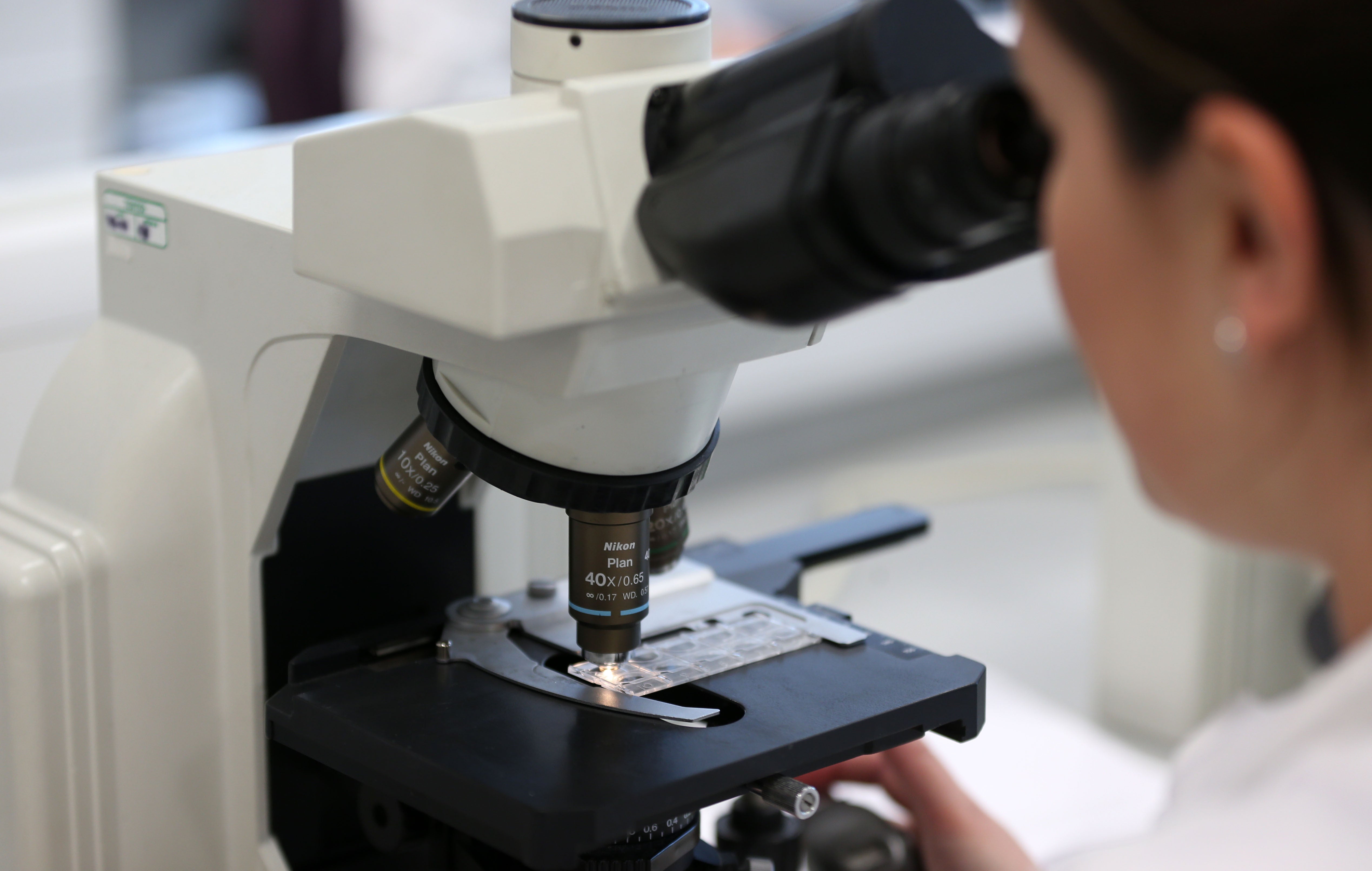Healthy gut bacteria may improve the success of cancer treatment – study
Researchers say the findings are a key step forward in the fight against multiple types of cancer.

Your support helps us to tell the story
From reproductive rights to climate change to Big Tech, The Independent is on the ground when the story is developing. Whether it's investigating the financials of Elon Musk's pro-Trump PAC or producing our latest documentary, 'The A Word', which shines a light on the American women fighting for reproductive rights, we know how important it is to parse out the facts from the messaging.
At such a critical moment in US history, we need reporters on the ground. Your donation allows us to keep sending journalists to speak to both sides of the story.
The Independent is trusted by Americans across the entire political spectrum. And unlike many other quality news outlets, we choose not to lock Americans out of our reporting and analysis with paywalls. We believe quality journalism should be available to everyone, paid for by those who can afford it.
Your support makes all the difference.Healthy gut bacteria improves the success of cancer treatment, a new study suggests.
Researchers say the findings are a key step forward in the fight against multiple types of cancer including melanoma, the most deadly form of skin cancer.
As less than 50% of people respond positively to immunotherapy for melanoma, finding ways to improve this number is crucial, the scientists suggest.
The study found that melanoma patients who receive therapy to help their immune system kill cancer cells respond differently to treatment depending on the types of microbes in their gut.
The new research suggests the microorganisms that hinder therapy have more of an influence than ones that are beneficial.
This new study could have a major impact on oncology and medicine in general
Dr Karla Lee, clinical researcher at King’s College London and first author of the study, said: “Preliminary studies on a limited number of patients have suggested that the gut microbiome, as an immune system regulator, plays a role in the response of each patient to cancer immunotherapy, and particularly in the case of melanoma.
“This new study could have a major impact on oncology and medicine in general.”
The microbiome, the set of microorganisms that live in the intestines, can be altered through dietary changes, probiotics and faecal transplantation.
Researchers suggest understanding the characteristics of the microbiome could allow doctors to change a patient’s microbiome before starting treatment.
Co-author Professor Tim Spector from King’s College London said: “This study shows the chances of survival based on healthy microbes nearly doubled between subgroups.
“The ultimate goal is to identify which specific features of the microbiome are directly influencing the clinical benefits of immunotherapy to exploit these features in new personalised approaches to support cancer immunotherapy.
“But in the meantime, this study highlights the potential impact of good diet and gut health on chances of survival in patients undergoing immunotherapy.”
The study put together the largest group of patients with melanoma and samples of their gut microbiome from five clinical centres in the UK, the Netherlands and Spain.
Researchers carried out a large-scale sequencing of the gut microbiome to investigate whether there was a link between the make up of the gut microbiome and response to immunotherapy.
They found a complex association that involves different bacterial species in different patient groups.
The presence of three types of bacteria appeared to be associated with a better immune response.
The research also found that the microbiome itself is strongly influenced by factors including the make-up of the patient’s body and diet.
Co-author Professor Nicola Segata from the University of Trento, Italy, said: “Our study shows that studying the microbiome is important to improve and personalise immunotherapy treatments for melanoma.
“However, it also suggests that because of the person-to-person variability of the gut microbiome, even larger studies must be carried out to understand the specific gut microbial features that are more likely to lead to a positive response to immunotherapy.”
The study is published in Nature Medicine and co-ordinated by King’s College London, CIBIO Department of the University of Trento and European Institute of Oncology in Italy, University of Groningen in the Netherlands and funded by the Seerave Foundation.